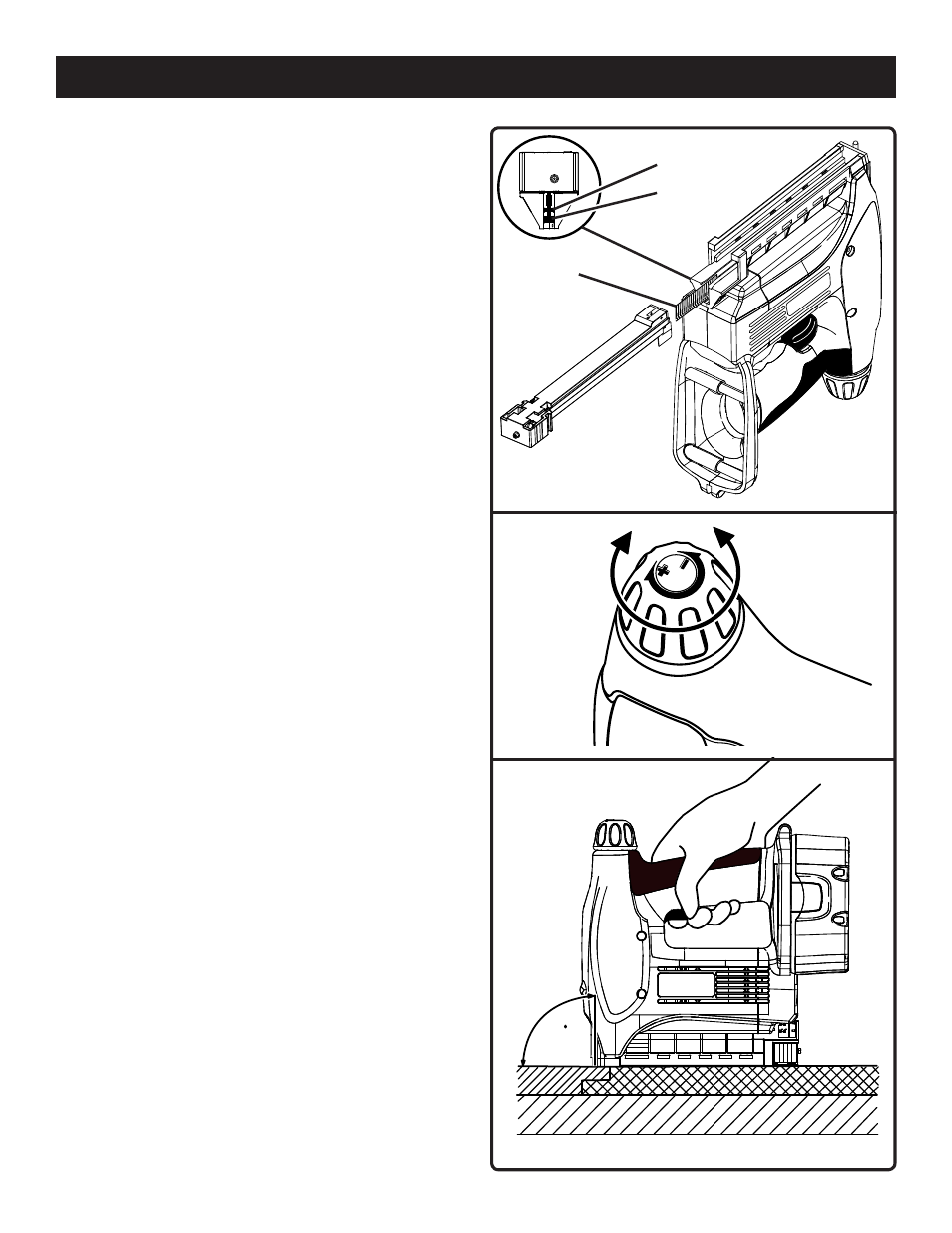Operation – Ryobi P300 User Manual
Page 10

10
OPERATiON
bRaDS
3/4 In. To 1 In.
1-1/4 In.
LOAdiNG THE TOOL WiTH bRAdS
See Figure 5.
Remove battery pack from the tool.
Hold tool upside down; squeeze latch and slide base
open.
Place brads in the center of the channel with "T" head
sitting on the slot base. Close base while making sure
brad strip stays upright in channel.
NOTE: There are two channels for the brads. Use the
smaller channel for brads sized 3/4 in. to 1 in. Use the
larger channel for brads sized 1-1/4 in. Refer to molding
on the tool.
Make sure that the latch is securely locked in place.
Reattach battery pack to tool.
SETTiNG dEPTH
See Figure 6.
Rotate the depth adjustment knob clockwise to use more
force for nailing or stapling.
Rotate depth adjustment knob counter clockwise to use
less force for nailing or stapling.
Test on a scrap piece of the same material you are using
to achieve the desired results.
NOTE: Harder materials will require more force to nail or
staple.
NAiLiNG OR STAPLiNG
See Figure 7.
Hold handle firmly with magazine flat to workpiece
forming a 90º angle.
Press the activation foot of the nailer/stapler down
against the workpiece to disengage the safety interlock.
The activation foot must be depressed before the switch
trigger is depressed.
Release the switch trigger and activation foot before
driving another brad or staple.
NOTE: You must release the activation foot and switch
trigger after each brad or staple to reset the tool. The tool
will not fire another staple or brad until the activation foot
and switch trigger are released.
REMOviNG A JAMMEd bRAd/STAPLE
Remove battery pack from the tool.
Hold tool upside down; squeeze latch and slide base
open.
Remove unused brads/staples from magazine.
Remove jammed brad/staple with needle nose pliers.
NOTE: You must remove jammed brad/staple before
using tool any further. If you try to fire a brad/staple
while the tool is jammed, you could cause damage to
the mechanism.
90
Fig. 7
Fig. 6
InCREaSE
foRCE
DECREaSE
foRCE
Fig. 5
